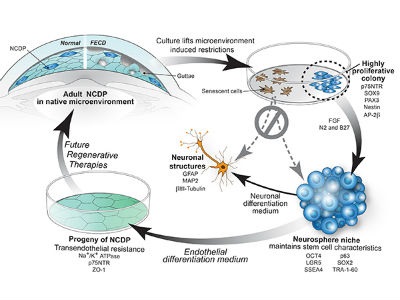
Recent findings from researchers at Massachusetts Eye and Ear may hold promise for new therapies for patients with Fuchs’ Endothelial Corneal Dystrophy (FECD), and another team of researchers have discovered a new mutation in a highly antibiotic-resistant strain of E. coli in a patient's cornea.
Reportedly for the first time, researchers at Massachusetts Eye and Ear have identified rapidly proliferating cells — known as "neural crest-derived progenitor cells" — in the corneal endothelium of specimens from normal corneas and from corneas with FECD. Researchers believe these proliferating cells may be able to regenerate a patient's own endothelial cells — even in patients with FECD — which may provide an alternative to corneal transplantation.
The findings were recently published in the American Journal of Pathology.
Click here to read the full press release.
And another team of researchers have reportedly discovered a new mutation in a highly antibiotic-resistant strain of E. coli that resists clearance by the body’s own immune system by inhibiting white blood cells that ordinarily kill and remove bacteria. The discovery was made in a patient recently diagnosed with a severe corneal infection, where the underlying bacterium was determined to be "ESBL E. coli" with a mutation never seen before — the bacterium reportedly produced a layer of slime on its surface that inhibited the ability of white blood cells to trap the microbe.
The researchers are reportedly sharing their findings and treatment protocols to help physicians quickly identify this type of bacteria and limit its spread.
The findings were recently published in JAMA Ophthalmology.
Click here to read the full press release.
Source: Massachusetts Eye and Ear